Private Event
Nov 2
@
12:00 pm
No items found.
The Tower Theatre is hosting a private event today. If you would like to rent the theatre for a private or public event please contact Stephanie Johnson, Director of Events, stephaniej@towertheatre.org
.png)
Private Event
Nov 4
@
12:00 pm
No items found.
The Tower Theatre is hosting a private event today. If you would like to rent the theatre for a private or public event please contact Stephanie Johnson, Director of Events, stephaniej@towertheatre.org
.png)
Private Event
Nov 5
@
12:00 pm
No items found.
The Tower Theatre is hosting a private event today. If you would like to rent the theatre for a private or public event please contact Stephanie Johnson, Director of Events, stephaniej@towertheatre.org
.png)
Art with a Splash of Science
Nov 5
@
1:00 pm
Presented by Lets Paint, Bend!
This event takes place in the Encore Space at the Tower. When: Wednesdays, 1–4 pm. Who: Elementary-aged students
Registration: $45

The Rocky Horror Show
Nov 7
@
7:30 pm
Presented by Thoroughly Modern Productions!
Reserved seating, doors open at 6:30 PM
This event contains adult content. 18+ recommended.
Tickets: $45 - $55 (plus $8 Historic Preservation fee)

The Rocky Horror Show
Nov 8
@
7:30 pm
Presented by Thoroughly Modern Productions!
Reserved seating, doors open at 6:30 PM
This event contains adult content. 18+ recommended.
Tickets: $45 - $55 (plus $8 Historic Preservation fee)

The Rocky Horror Show - The Midnight Special Feature!
Nov 8
@
11:59 pm
Presented by Thoroughly Modern Productions!
Reserved seating, lobby doors open at 11:00 PM (11/8), House doors open at 11:30 PM
This event contains adult content. 18+ recommended.
Tickets: $45 - $55 (plus $8 Historic Preservation fee)

Maria Bamford - NEW DATE!
Nov 9
@
7:30 pm
No items found.
Presented by Emporium Presents!
Reserved seating, doors open at 6:30 PM.
Tickets: $34.50 - $59.50 (plus fees)

Private Event
Nov 12
@
12:00 pm
No items found.
The Tower Theatre is hosting a private event today. If you would like to rent the theatre for a private or public event please contact Stephanie Johnson, Director of Events, stephaniej@towertheatre.org
.png)
Art with a Splash of Science
Nov 12
@
1:00 pm
Presented by Lets Paint, Bend!
This event takes place in the Encore Space at the Tower. When: Wednesdays, 1–4 pm. Who: Elementary-aged students
Registration: $45

CANCELLED - Golden Girls The Laughs Continue at 2PM
Nov 13
@
2:00 pm
Presentd by Outback/Murray & Peter
This event has been cancelled! To purchase tickets to the 7PM show, follow links below.

Golden Girls The Laughs Continue at 7PM
Nov 13
@
7:00 pm
Presented by Outback/Murray & Peter.
Reserved seating, doors open at 6:00 PM.
18+ Only (Adult theme comedy)
Tickets: Tickets: $39.75-$115 (plus fees)

Judith Hill
Nov 14
@
7:30 pm
Presented by the nonprofit Tower Theatre Foundation!
Reserved seating, dancing space is open at the front of the auditorium. Doors open at 6:30 PM.
Reserved Seating: $19 - $39 (plus $8 Historic Preservation fee), Standing Room: $19 (plus $8 Historic Preservation fee)

CANCELLED - NUTCRACKER! Magical Christmas Ballet
Nov 18
@
3:00 pm
No items found.
Unfortunately, this event instance has been cancelled.

NUTCRACKER! Magical Christmas Ballet
Nov 18
@
7:00 pm
Presented by Talmi Entertainment!
Reserved seating, Lobby doors open at 6:00, House doors open at 6:30.
Tickets: $47-$207 (plus $8 Historic Preservation fee)

Art with a Splash of Science
Nov 19
@
1:00 pm
Presented by Lets Paint, Bend!
This event takes place in the Encore Space at the Tower. When: Wednesdays, 1–4 pm. Who: Elementary-aged students
Registration: $45

Powderhound Preview and Fundraiser
Nov 19
@
7:00 pm
No items found.
Presented by Central Oregon Avalanche Center.
General Admission, doors open at 6:00 PM.
Tickets Go On Sale November 2!

Holly Bowling with Paula Dreyer
Nov 20
@
7:00 pm
Presented by the nonprofit Tower Theatre Foundation.
Reserved seating, dancing space is open at the front of the auditorium. Doors open at 6:00 PM.
Tickets: $19 - $39 (plus $8 Historic Preservation fee)
.png)
John Craigie With special guest The Coffis Brothers Keep It Warm Tour 2025
Nov 21
@
8:00 pm
No items found.
Presented by Action DeNiro Productions
Reserved seating, doors open at 7:00 PM.
Tickets: $47 - $58.5 (plus $8 Historic Preservation fee)
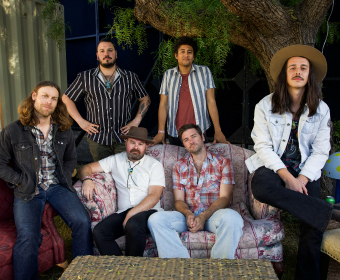
Naturally 7
Nov 22
@
7:30 pm
Presented by the nonprofit Tower Theatre Foundation!
Reserved seating, doors open at 6:30 PM.
Tickets: $44 - $64 (plus $8 Historic Preservation fee)

Christmas with C.S. Lewis
Nov 23
@
2:00 pm
No items found.
Presented by Emery Entertainment!
Reserved seating, doors open at 1:00 PM.
Tickets: $73.5 - $92 (plus $8 Historic Preservation Fee)

Samantha Fish + Robert Jon & The Wreck
Nov 24
@
7:30 pm
Presented by the nonprofit Tower Theatre Foundation!
Reserved seating, doors open at 6:30 PM. The first three rows have been removed for dancing!
Reserved Seating: $44 - $64 (plus $8 Historic Preservation fee), Standing Room: $44 (plus $8 Historic Preservation fee)
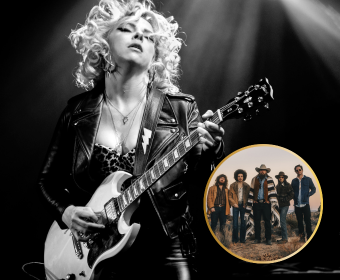
Private Event
Nov 28
@
12:00 pm
No items found.
The Tower Theatre is hosting a private event today. If you would like to rent the theatre for a private or public event please contact Stephanie Johnson, Director of Events, stephaniej@towertheatre.org
.png)
The Nutcracker: A Child's Tale Sponsored by Wolf Construction & Development
Nov 29
@
1:30 pm
Presented by Academie de Ballet Classique
Reserved seating, doors open at 1:00 PM.
Tickets: $33 - $56.5 (plus $8 Historic Preservation fee), Kids (3-11 years old): $24 (plus $8 HPF)

The Nutcracker: A Child's Tale Sponsored by Wolf Construction & Development
Nov 29
@
6:00 pm
Presented by Academie de Ballet Classique
Reserved seating, doors open at 5:30 PM.
Tickets: $33 - $56.5 (plus $8 Historic Preservation fee), Kids (3-11 years old): $24 (plus $8 HPF)

The Nutcracker: A Child's Tale Sponsored by Wolf Construction & Development
Nov 30
@
12:00 pm
Presented by Academie de Ballet Classique
Reserved seating, doors open at 11:30 AM.
Tickets: $33 - $56.5 (plus $8 Historic Preservation fee), Kids (3-11 years old): $24 (plus $8 HPF)

The Nutcracker: A Child's Tale Sponsored by Wolf Construction & Development
Nov 30
@
3:30 pm
Presented by Academie de Ballet Classique
Reserved seating, doors open at 3:00 PM.
Tickets: $33 - $56.5 (plus $8 Historic Preservation fee), Kids (3-11 years old): $24 (plus $8 HPF)

O Christmas Tea: A British Comedy
Dec 2
@
3:00 pm
Presented by James & Jamesy
Reserved seating, Lobby doors open at 2:00 PM, Auditorium opens at 2:30 PM.
Adult: $50.50-$79, Student: $39-$68 (plus $8 Historic Preservation fee)

O Christmas Tea: A British Comedy
Dec 2
@
7:30 pm
Presented by James & Jamesy
Reserved seating, Lobby doors open at 6:30 PM, Auditorium opens at 7:00 PM.
Adult: $50.50-$79, Student: $39-$68 (plus $8 Historic Preservation fee)

Art with a Splash of Science
Dec 3
@
1:00 pm
Presented by Lets Paint, Bend!
This event takes place in the Encore Space at the Tower. When: Wednesdays, 1–4 pm. Who: Elementary-aged students
Registration: $45

Central Oregon Youth Orchestra Winter 2025 Concert
Dec 3
@
7:00 pm
No items found.
Presented by Central Oregon Youth Orchestra!
Reserved seating, doors open at 6:00 PM. House doors open at 6:15 PM.
Tickets: $16 - $21 (plus $8 Historic Preservation fee)

Guardians of Life: Indigenous Practices for a Thriving Earth @ 3PM
Dec 4
@
3:00 pm
Presented by Central Oregon Landwatch
General admission, doors open at 2:00 PM.
Tickets: $30 General Admission, $15 Student (plus $8 Historic Preservation fee)

Guardians of Life: Indigenous Practices for a Thriving Earth @ 7PM
Dec 4
@
7:00 pm
Presented by Central Oregon Landwatch
General admission, doors open at 6:00 PM.
Tickets: $30 General Admission, $15 Student (plus $8 Historic Preservation fee)

Private Event
Dec 5
@
12:00 pm
No items found.
The Tower Theatre is hosting a private event today. If you would like to rent the theatre for a private or public event please contact Stephanie Johnson, Director of Events, stephaniej@towertheatre.org
.png)
Holiday Magic - A Season's Journey - 12.6.25
Dec 6
@
7:00 pm
Presented by Cascade Chorale Association!
Reserved seating, doors open at 6:00 PM.
Tickets: $25 - $37 (plus $8 Historic Preservation fee)
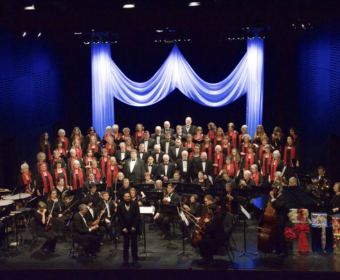
Holiday Magic - A Season's Journey - 12.7.25
Dec 7
@
3:00 pm
Presented by Cascade Chorale Association!
Reserved seating, doors open at 2:00 PM.
Tickets: $25 - $37 (plus $8 Historic Preservation fee)

NUTCRACKER - Grand Kyiv ballet
Dec 9
@
7:00 pm
No items found.
Presented by the Grand Kyiv Ballet
Reserved seating, doors open at 6:00 PM
Tickets: $52.5 - $91.5 (plus $8 Historic Preservation Fee)

Art with a Splash of Science
Dec 10
@
1:00 pm
Presented by Lets Paint, Bend!
This event takes place in the Encore Space at the Tower. When: Wednesdays, 1–4 pm. Who: Elementary-aged students
Registration: $45

2025 Rock the Holidays with Aaron Meyer
Dec 10
@
7:30 pm
Presented by Sunriver Music Festival.
Reserved seating. Tickets sold through Sunriver Music Festival!
Tickets: $40-$65 + fees; $25 for ages 25 and under

ELF - The Movie!
Dec 11
@
7:00 pm
Presented by the nonprofit Tower Theatre Foundation!
Reserved seating, doors open at 6:00 PM.
Tickets: $14 (plus $8 Historic Preservation fee)

Broadway In Bend
Dec 12
@
7:00 pm
No items found.
Presented by Summit Health Cares!
Reserved seating, doors open at 6:00 PM
General Seating: $40, Children (12 & under): $25, Premium Seating: $100 (includes admission to reception). Prices listed don't include fees.

What Sweeter Music!
Dec 14
@
7:00 pm
No items found.
Presented by Central Oregon Mastersingers.
Reserved seating, doors open at 6:00 PM.
Tickets: $44 - $54 (plus $8 Historic Preservation fee)
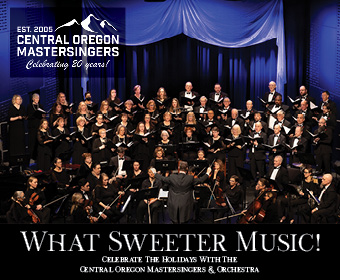
Private Event
Dec 15
@
12:00 pm
No items found.
The Tower Theatre is hosting a private event today. If you would like to rent the theatre for a private or public event please contact Stephanie Johnson, Director of Events, stephaniej@towertheatre.org
.png)
Private Event
Dec 16
@
12:00 pm
No items found.
The Tower Theatre is hosting a private event today. If you would like to rent the theatre for a private or public event please contact Stephanie Johnson, Director of Events, stephaniej@towertheatre.org
.png)
Private Event
Dec 17
@
12:00 pm
No items found.
The Tower Theatre is hosting a private event today. If you would like to rent the theatre for a private or public event please contact Stephanie Johnson, Director of Events, stephaniej@towertheatre.org
.png)
Art with a Splash of Science
Dec 17
@
1:00 pm
Presented by Lets Paint, Bend!
This event takes place in the Encore Space at the Tower. When: Wednesdays, 1–4 pm. Who: Elementary-aged students
Registration: $45

Swingin' Tower Christmas - 12.18.25
Dec 18
@
7:00 pm
Presented by Salvesen Homes & the nonprofit Tower Theatre Foundation!
Reserved seating, doors open at 6:00 PM.
Tickets: $44-$54 (plus $8 Historic Preservation fee)

Swingin' Tower Christmas - 12.19.25
Dec 19
@
7:00 pm
Presented by Salvesen Homes & the nonprofit Tower Theatre Foundation!
Reserved seating, doors open at 6:00 PM.
Tickets: $44-$54 (plus $8 Historic Preservation fee)

Swingin' Tower Christmas - 12.20.25
Dec 20
@
7:00 pm
Presented by Salvesen Homes & the nonprofit Tower Theatre Foundation!
Reserved seating, doors open at 6:00 PM.
Tickets: $44-$54 (plus $8 Historic Preservation fee)

Swingin' Tower Christmas - 12.21.25
Dec 21
@
2:00 pm
Presented by Salvesen Homes & the nonprofit Tower Theatre Foundation!
Reserved seating, doors open at 1:00 PM.
Tickets: $44-$54 (plus $8 Historic Preservation fee)

The Dirty Dozen Brass Band
Jan 5
@
7:30 pm
Presented by the nonprofit Tower Theatre Foundation
Reserved seating, doors open at 6:30 PM.
Reserved Seating: $34 - $54 (plus $8 Historic Preservation fee), Standing Room: $34 (plus $8 Historic Preservation fee)
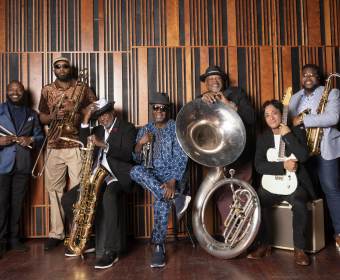
Garrison Keillor
Jan 8
@
7:30 pm
Presented by the nonprofit Tower Theatre Foundation!
Reserved seating, doors open at 6:30 PM.
Tickets: $34 - $59 (plus $8 Historic Preservation fee)

Jamie Lissow - The Better Off Dad Comedy Tour
Jan 11
@
7:30 pm
No items found.
Presented by Outback Presents!
Reserved seating, doors open at 6:30PM.
Tickets: $29.75 - $121.75 (plus fees)

STOP MAKING SENSE: A Film by Jonathan Demme and Talking Heads - Live Event Hosted by Jerry Harrison
Jan 14
@
7:30 pm
Presented by the nonprofit Tower Theatre Foundation!
Reserved seating, doors open at 6:30 PM.
Tickets: $39 - $54 (plus $8 Historic Preservation fee)

Left Behind
Jan 15
@
6:00 pm
Presented with High Desert Education!
General admission, doors open at 5:00 PM.
Tickets: $8 (plus $2 Historic Preservation fee)

The Traveling Wilbury's Review
Jan 16
@
7:30 pm
Presented by the nonprofit Tower Theatre Foundation!
Reserved seating, doors open at 6:30 PM.
Tickets: $14 - $34 (plus $8 Historic Preservation fee)

Ron Artis II with Cousin Curtiss
Jan 17
@
7:30 pm
Presented by the nonprofit Tower Theatre Foundation!
Reserved seating, doors open at 6:30 PM.
Tickets: $19 - $39 (plus $8 Historic Preservation fee)

Keller Williams
Jan 18
@
7:30 pm
Presented by the nonprofit Tower Theatre Foundation!
Reserved seating, doors open at 6:30 PM.
Tickets: $24 - $44 (plus $8 Historic Preservation fee)

JD Simo & Luther Dickinson – Do The Rump! Tour
Jan 22
@
7:30 pm
Presented by the nonprofit Tower Theatre Foundation!
Reserved seating, doors open at 6:30 PM
Tickets: $19 - $39 (plus $8 Historic Preservation fee)
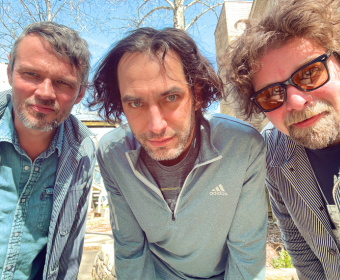
The Peking Acrobats
Jan 25
@
7:30 pm
Presented by the nonprofit Tower Theatre Foundation!
Reserved seating, doors open at 6:30 PM.
Tickets: $39 - $59 (plus $8 Historic Preservation fee)

Private Event
Jan 26
@
12:00 pm
No items found.
The Tower Theatre is hosting a private event today. If you would like to rent the theatre for a private or public event please contact Stephanie Johnson, Director of Events, stephaniej@towertheatre.org
.png)
Anjelah Johnson-Reyes: The Family Reunion Tour
Jan 29
@
8:00 pm
No items found.
Presented by Knitting Factory Entertainment!
Reserved seating, doors open at 7:00 PM.
Tickets: $63.25 - $91.5 (plus fees)

The Ten Tenors
Jan 30
@
7:30 pm
Presented by the nonprofit Tower Theatre Foundation!
Reserved seating, doors open at 6:30 PM.
Tickets: $54 - $79 (plus $8 Historic Preservation fee)

Hot Buttered Rum
Jan 31
@
7:30 pm
Presented by the nonprofit Tower Theatre Foundation!
Reserved seating, doors open at 6:30 PM.
Reserved Seating: $14 - $24 (plus $8 Historic Preservation fee), Standing Room: $14 (plus $8 Historic Preservation fee)
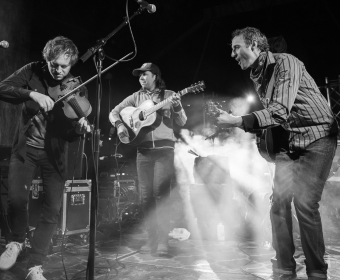
2026 International Guitar Night
Feb 3
@
7:30 pm
Presented by the nonprofit Tower Theatre Foundation!
Reserved seating, doors open at 6:30 PM.
Tickets: $34 - $54 (plus $8 Historic Preservation fee)
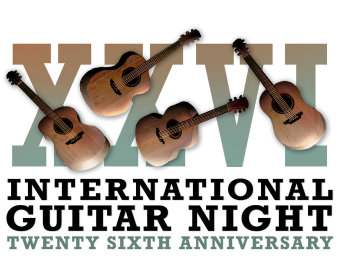
Mania: The ABBA Tribute - 2.5.26
Feb 5
@
7:30 pm
No items found.
Presented by Emporium Presents!
Reserved seating, doors open at 6:30 PM.
Tickets: $39.50 - $69.50 (plus fees)

Peppa Pig: My First Concert
Feb 11
@
6:30 pm
Presented by the nonprofit Tower Theatre Foundation!
Reserved seating, doors open at 5:30 PM.
Tickets: $34 - $44 (plus $8 Historic Preservation fee)

The Moanin' Frogs
Feb 12
@
7:30 pm
Presented by the nonprofit Tower Theatre Foundation!
Reserved seating, doors open at 6:30 PM
Tickets: $24 - $44 (plus $8 Historic Preservation fee)

Blues Harmonica Blowout
Feb 13
@
7:30 pm
Presented by the nonprofit Tower Theatre Foundation!
Reserved seating, doors open at 6:30 PM.
Tickets: $34 - $54 (plus $8 Historic Preservation fee)
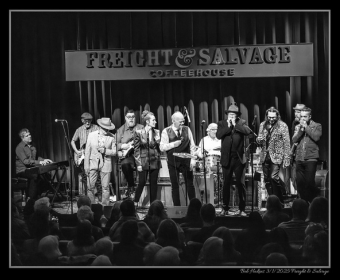
HDCM Concert Series: TESLA QUARTET
Feb 14
@
7:30 pm
No items found.
Presented by High Desert Chamber Music!
General admission, doors open at 6:30 PM. Pre-Concert talk at 6:45 PM.
Tickets: $59 General, $15 Child/Student

Private Event
Feb 15
@
12:00 pm
No items found.
The Tower Theatre is hosting a private event today. If you would like to rent the theatre for a private or public event please contact Stephanie Johnson, Director of Events, stephaniej@towertheatre.org
.png)
Private Event
Feb 16
@
12:00 pm
No items found.
The Tower Theatre is hosting a private event today. If you would like to rent the theatre for a private or public event please contact Stephanie Johnson, Director of Events, stephaniej@towertheatre.org
.png)
Private Event
Feb 17
@
12:00 pm
No items found.
The Tower Theatre is hosting a private event today. If you would like to rent the theatre for a private or public event please contact Stephanie Johnson, Director of Events, stephaniej@towertheatre.org
.png)
Private Event
Feb 18
@
12:00 pm
No items found.
The Tower Theatre is hosting a private event today. If you would like to rent the theatre for a private or public event please contact Stephanie Johnson, Director of Events, stephaniej@towertheatre.org
.png)
Private Event
Feb 19
@
12:00 pm
No items found.
The Tower Theatre is hosting a private event today. If you would like to rent the theatre for a private or public event please contact Stephanie Johnson, Director of Events, stephaniej@towertheatre.org
.png)
Private Event
Feb 23
@
12:00 pm
No items found.
The Tower Theatre is hosting a private event today. If you would like to rent the theatre for a private or public event please contact Stephanie Johnson, Director of Events, stephaniej@towertheatre.org
.png)
Private Event
Feb 24
@
12:00 pm
No items found.
The Tower Theatre is hosting a private event today. If you would like to rent the theatre for a private or public event please contact Stephanie Johnson, Director of Events, stephaniej@towertheatre.org

Private Event
Feb 25
@
12:00 pm
No items found.
The Tower Theatre is hosting a private event today. If you would like to rent the theatre for a private or public event please contact Stephanie Johnson, Director of Events, stephaniej@towertheatre.org
.png)
Private Event
Feb 26
@
12:00 pm
No items found.
The Tower Theatre is hosting a private event today. If you would like to rent the theatre for a private or public event please contact Stephanie Johnson, Director of Events, stephaniej@towertheatre.org
.png)
Private Event
Mar 2
@
12:00 pm
No items found.
The Tower Theatre is hosting a private event today. If you would like to rent the theatre for a private or public event please contact Stephanie Johnson, Director of Events, stephaniej@towertheatre.org
.png)
Women of Americana
Mar 3
@
7:30 pm
Presented by the nonprofit Tower Theatre Foundation!
Reserved seating, doors open at 6:30 PM
Tickets: $39 - $59 (plus $8 Historic Preservation fee)

Ladysmith Black Mambazo
Mar 4
@
7:30 pm
Presented by the nonprofit Tower Theatre Foundation!
Reserved seating, doors open at 6:30 PM.
Tickets: $39 - $59 (plus $8 Historic Preservation fee)
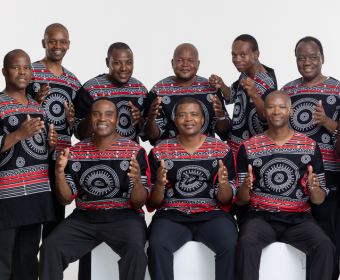
JigJam
Mar 7
@
7:30 pm
Presented by the nonprofit Tower Theatre Foundation!
Reserved seating, doors open at 6:30 PM. The first 3 rows have been removed for dancing space!
Reserved seating: $29 - $49 (plus $8 Historic Preservation fee), Standing Room: $29 (plus $8 Historic Preservation fee)
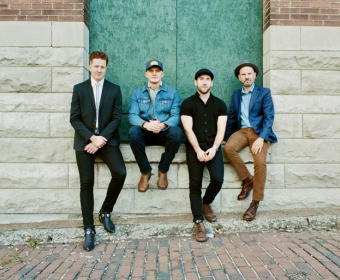
Devon Allman Blues Summit
Mar 9
@
7:30 pm
Presented by the nonprofit Tower Theatre Foundation!
Reserved seating, doors open at 6:30 PM.
Tickets: $44 - $69 (plus $8 Historic Preservation fee)
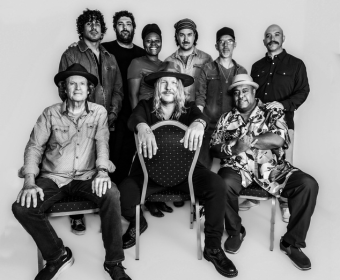
ARTRAGEOUS
Mar 10
@
7:30 pm
Presented by the nonprofit Tower Theatre Foundation!
Reserved seating, doors open at 6:30 PM.
Tickets: $24 - $44 (plus $8 Historic Preservation fee)

512: The Selena Experience
Mar 14
@
7:30 pm
Presented by the nonprofit Tower Theatre Foundation!
Reserved seating, doors open at 6:30 PM.
Tickets: $29 - $49 (plus $8 Historic Preservation fee)

Mitchum Yacoub & Jungle Fire
Mar 15
@
7:30 pm
Presented by the nonprofit Tower Theatre Foundation!
Reserved seating, the first three rows have been removed for dancing space! Doors open at 6:30 PM.
Reserved Seating: $12 - $32 (plus $8 Historic Preservation fee), Standing Room: $12 (plus $8 Historic Preservation fee)

Irish Rambling House
Mar 17
@
7:30 pm
Presented by the nonprofit Tower Theatre Foundation!
Reserved seating, doors open at 6:30 PM
Tickets: $39 - $59 (plus $8 Historic Preservation fee)

Josh Blue
Mar 19
@
7:30 pm
Presented by the nonprofit Tower Theatre Foundation!
Reserved seating with cocktail tables available, doors open at 6:30 PM.
Tickets: $29 - $54 (plus $8 Historic Preservation fee)

Fly Fishing Film Tour 2026 (F3T)
Mar 20
@
7:00 pm
No items found.
Presented by Skwala, Yeti, Costa!
General admission, doors open at 6:00 PM.
Adult: $29, Child: $17.25, (plus $8 Historic Preservation fee)
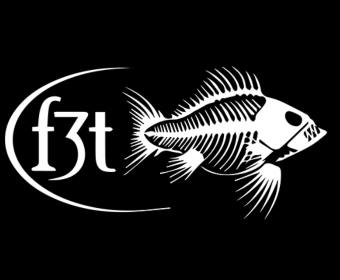
Rhythm of the Dance
Mar 23
@
7:30 pm
Presented by the nonprofit Tower Theatre Foundation!
Reserved seating, doors open at 6:30 PM.
Tickets: $34 - $54 (plus $8 Historic Preservation fee)

Tophouse
Mar 25
@
7:30 pm
Presented by the nonprofit Tower Theatre Foundation!
Reserved seating, doors open at 6:30 PM. First 3 rows removed for dancing space!
Reserved Seating: $19 - $29 (plus $8 Historic Preservation fee), Standing Room: $19 (plus $8 Historic Preservation fee)

Toubab Krewe
Mar 28
@
7:30 pm
Presented by the nonprofit Tower Theatre Foundation & 4PEAKS.
Reserved seating, doors open at 6:30 PM. The first 3 rows have been removed for dancing space.
Reserved Seating: $24 - $39 (plus $8 Historic Preservation fee), Standing Room: $24 (plus $8 Historic Preservation fee)

Donavon Frankenreiter
Mar 30
@
7:30 pm
Presented by the nonprofit Tower Theatre Foundation!
Reserved seating, doors open at 6:30 PM.
TICKETS: $34 - $54 (plus $8 Historic Preservation fee)

Bluebird Improv
Apr 1
@
7:30 pm
Presented by the nonprofit Tower Theatre Foundation!
Reserved seating, with cocktail tables available! Doors open at 6:30 PM.
Tickets: $39 - $64 (plus $8 Historic Preservation fee)

Drum Tao
Apr 2
@
7:30 pm
Presented by the nonprofit Tower Theatre Foundation!
Reserved seating, doors open at 6:30 PM.
Tickets: $39 - $59 (plus $8 Historic Preservation fee)
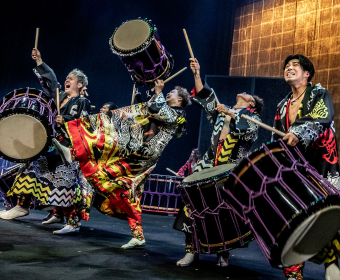
Psychology of a Serial Killer
Apr 7
@
7:30 pm
Presented by the nonprofit Tower Theatre Foundation.
Reserved seating, doors open at 6:30 PM
Tickets: $24 - $49 (plus $8 Historic Preservation fee)

Black Violin
Apr 8
@
7:30 pm
Presented by the nonprofit Tower Theatre Foundation.
Reserved seating, doors open at 6:30 PM.
Tickets: $39 - $149 (plus $8 Historic Preservation fee)
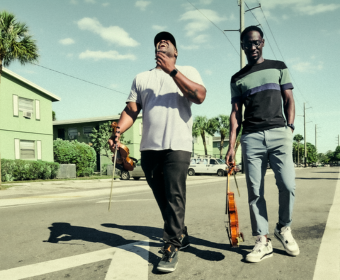
Eggy
Apr 9
@
7:30 pm
Presented by the nonprofit Tower Theatre Foundation!
Reserved seating, doors open at 6:30 PM.
Reserved Seating: $19 - $29 (plus $8 Historic Preservation fee), Standing Room: $19 (plus $8 Historic Preservation fee)

Charlie Chaplin's Smile
Apr 10
@
7:30 pm
Presented by the nonprofit Tower Theatre Foundation!
Reserved seating, doors open at 6:30 PM.
Tickets: $39 - $59 (plus $8 Historic Preservation fee)


No results found.


